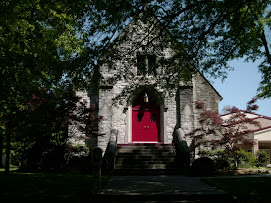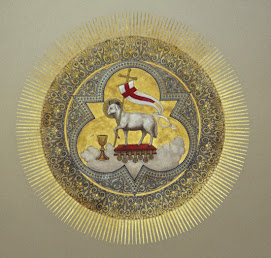The Augsburg Confession
“Chief Articles of Faith”
Article XV — Church Ceremonies
“Chief Articles of Faith”
Article XV — Church Ceremonies
NOTE: Immediately below is Article XV itself . . .
Our churches teach that ceremonies ought to be observed that may be observed without sin. Also, ceremonies and other practices that are profitable for tranquility and good order in the Church (in particular, holy days, festivals, and the like) ought to be observed.
Yet the people are taught that consciences are not to be burdened as though observing such things was necessary for salvation (Colossians 2:16-17). They are also taught that human traditions instituted to make atonement with God, to merit grace, and to make satisfaction for sins are opposed to the Gospel and the doctrine of faith. So vows and traditions concerning meats and days, and so forth instituted to merit grace and to make satisfaction for sins, are useless and contrary to the Gospel. +
In Concordia The Lutheran Confessions A Reader’s Edition of the Book of Concord, there is this “forward” which is intended to help first time readers of the Augsburg Confession understand the context in which it was written:
“Lutheranism embraces the good historic traditions of the Church, especially those of the Western Church. These include such things as following the pattern of the Church year, lectionary readings from the Bible, a liturgical order of worship, various festival days, vestments worn by clergy, and the use of candles, crucifixes, and other objects. As this article makes very clear, in the Lutheran Church, rites, decorations, or traditions are never used or followed to appease God’s wrath or to earn the forgiveness of sins. Lutheranism removed from the Church useless and harmful traditions such as monastic vows and insisting on certain foods on certain days. (See also Ap XV; SA III XV; FC Ep X and SD X.)(Source: CONCORDIA The Lutheran Confessions A Reader’s Edition of the Book of Concord. p. 64. © 2005, CPH, St. Louis, MO.)
“CORE VALUES: HARMFUL TRADITIONS”
Dear Brothers and Sisters in Christ our Lord . . .
TRADITIONS! Are they good? Are they bad? What makes the difference?
Does your family have the tradition of gathering with other members of your family on Christmas Day? Most of us would agree that is a good tradition. BUT, if your family gathers to celebrate Christmas Day by stealing the hubcaps off of your neighbors’ cars; well, that would be a bad tradition.
Traditions can be good or bad. They can sometimes be good and sometimes be bad. This is especially true in the holy Christian Church. Read on, please . . .
+ + +
ARTICLE XV: Church Ceremonies
The Lutheran reformers inherited a BUNCH of traditions from Catholicism of their day. There were certain ways of doing things which were traditional. Examples would include, but would certainly not be limited to, things like how to fold your hands, how to posture yourself when approaching the altar, how to make the sign of the cross over yourself, and things like that.
They also inherited the tradition of having worship services on certain days besides just Sundays. They inherited the tradition of rosaries which, with their beads, could serve as a handy reminder and as a handy outline for praying. They even inherited some dietary traditions.
Considering those traditions, the thing that the Lutheran reformers absolutely insisted on (and we MUST insist on it in our day) was: do traditions [1] serve the Gospel? and [2] build people up in the holy Christian faith?
SO . . . when they were preparing the Augsburg Confession (to demonstrate that the “Lutherans” were not merely an impious group of troublemakers), they drafted Article XV on the subject of “Church Ceremonies.” Please go read that Article XV on p. 3 of this newsletter before you go on. Thank you . . . .
+ + +
The “WHY?” Question . . .
It is terribly important that, in the things which go on in the Church (the local congregation!), we always ask “Why?” In fact, the Passover Meal which the Old Testament church celebrated until the coming of Christ was a meal which, with its unusual setting and unusual foods (bitter herbs, unleavened bread, etc.), was designed to cause especially the children to ask “Why?” The liturgy of that meal came to be prepared so that a child would regularly ask “Why?” and then the father of the household, as the teacher, could answer and explain the meaning of the meal to the whole family over and over again.
The “Why?” question was what was very much on Luther’s mind when he wrote the Small Catechism (intended to teach adults so that they could teach the children) the “What does this mean?” of Christian doctrine.
“Why?” the hymns? “Why?” the liturgy? (Join us on the Sundays in the basement Bible Class starting in October for the answer to that one.) “Why?” worship on Sundays? “Why?” weekly worship? “Why?” Sunday School and Bible Classes? “Why?” crosses and candles and bowing and making the sign of the cross? “Why?” the midweek worship services during Advent and Lent? “Why?” the Church calendar?
If we in the Church cannot “make the case” for the “Why?” of our traditions, customs, and ceremonies, then we had better re-examine them to be sure that they do (or not) three things: [1] that they do conform to Holy Scripture; [2] that they do serve souls for the sake of the Gospel; and [3] that they do not substitute our work for Christ’s holy work! You should also know that your pastor fully welcomes your “Why?” questions and is (mostly) prepared to answer them!
+ + +
When You MUST Say “NO!” to Tradition!
As a Christian, you are required to say “No!” to any tradition which violates the above two criteria. Consider this example as just one example:
Do Midweek Worship Services during Advent and Lent meet the above criteria? [1] They certainly are not against Scripture; [2] as the Law and Gospel are preached there and all of the Holy Scripture is expounded upon there, they serve souls; and [3] if they always point to Christ and His work for our salvation, they are ok; BUT, in the event that the impression is implied or explicitly given that by attending midweek services you are somehow meriting favor with God, then you must say NO.
What?! OK, a further word of explanation is truly in order. . . .
Attending worship is good for your soul. It calls you to repent of your sins when the Law is preached to you. Thanks be to God, it strengthens your faith when the Gospel is preached to you. However, worship is NOT an act by which you garner any favor with God. If you worship God thinking that He now “owes me one,” then you have another think coming! There are bunches of Bible passages in which God says that He expected sacfices and burnt offerings in the Old Testament (for the O.T. sacrifices and burnt offerings were always to point the people to the coming Savior!). But there are other places where God plainly says that He does not want those burnt offerings (“Your burnt offerings are not acceptable, nor your sacrifices pleasing to Me.” - Jeremiah 6:20) BECAUSE the people’s hearts were not given to Him. God wanted His Old Testament people to worship Him properly; just going through some motions by which they thought they might manipulate Him was NOT worship. See?
So, similarly, we should attend Sunday worship services but NOT thinking that, by coming to Church, we merit salvation. That would turn worship into merely our gift to God and would ignore the wonderful truth that worship is primarily about God bringing His gifts to us!
Eating fish on Friday’s was a custom in many Roman Catholic households. That practice was not restricted to only Friday’s during Lent; rather, it was every Friday, all year long. It was a salutary practice insofar as it was a kind of fast. By not eating meat on Friday’s, folks were supposed to be reminded that our Lord Christ died on a Friday. That is a very good thing to remember. But when the tradition becomes important in itself, it is no longer of salutary (for our souls’ good) purpose.
Making the sign of the cross is likewise a very good thing to do. “I am baptized in the Name of the Father and of the Son and of the Holy Spirit,” is what we are saying to ourselves when we make the sign of the cross. I as your pastor am glad to see more and more of our members freely making the sign of the cross. I even encourage making the sign of the cross and have taught it to our confirmands. BUT, no one may dare to insist on making the sign of the cross. Nor should anyone make fun of another who makes the sign of the cross. Nor should anyone think him-/herself more of a Christian if s/he makes (or not) the sign of the cross. It serves our faith. It does not give us faith. It does not make us “more righteous” with God or before others.
The pre-worship light suppers which we customarily serve in our congregation are a wonderful tradition which I, for one, applaud. They serve our members who will attend worship later that evening. But if it happens that people come to the church for the meal and then ignore the worship service, or skip worship in order to prepare or clean up from the meal, then the meal has taken on the wrong significance.
+ + +
And the point is . . .
. . . since the local congregation is supposed to distribute (properly!) God’s holy means of grace, the congregation must be careful that her time-honored traditions always serve souls by serving the Gospel to souls. May it ever be that Godly traditions may be properly observed for souls’ good! This is our prayer . . .
. . . In Christ, /s/ Pastor Wollenburg





